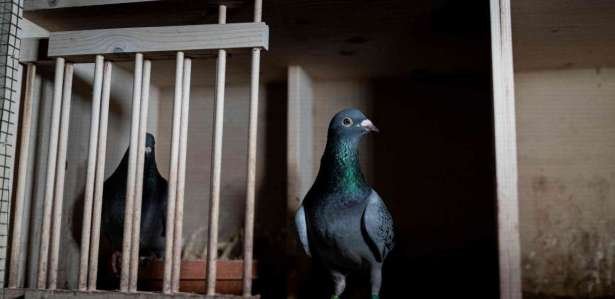

(Photo: Olly Scarf/AFP – 6/17/21)
The United Kingdom has become one of the countries with the most advanced vaccination against coronaviruses, the center of attention in the world after recording 46,000 cases and more than 500 admissions within 24 hours. Since the beginning of the epidemic, there are 5.2 million infected and 129 thousand deaths, the new escalation of cases occurs at a time when 51% of the population has completed the vaccination schedule and the country is gradually returning to normal life.
Recently, Planet Earth has been following two major sporting events hosted by England: the European Cup decision, between Italy and the host team, and the tennis tournament at Wimbledon, when Serbian Novak Djokovic beat Italian Matteo Berrettini. In both, scenes of unrest both inside and outside the sports environment were recorded, as well as a lack of respect for the obligatory use of masks. On the streets of London, fans also flocked to various parks, squares and pubs, starring in photos that are a negative example for other countries.
The English government is asking people to take care of themselves again to avoid a new horrific scenario caused by the disease. The authorities have already imagined that there will be an increase in cases, which could reach 100,000 per day, as restrictions are lifted. Despite this, Prime Minister Boris Johnson continues the plan to end next Monday (19/07) the easing of confinement imposed in January in England, considering that the success of the vaccination campaign compensates for the progress of the virus.
“European countries are experiencing the entry of new variants, including Delta, India. It has already been shown that the variant has a partial ability to escape the immune response caused by the vaccine or by a previous infection,” says researcher Flvio Guimares da Fonseca, coordinator of the Center for Technology Vaccines (CT Vacinas) is a member of the Virus Network, a core set up by the federal government to combat COVID-19.
“One aspect that still raises a lot of suspicion in Brazil is that even when vaccinated, a person is still at risk of infection: vaccines have an important place in preventing serious cases and deaths. But most vaccines are not 100% effective and most people will become infected even if they are vaccinated. …but you won’t get seriously ill. When you have an increased exposure in a population that has been vaccinated, such as increased agglomerations or people who don’t have a face shield, it’s normal to have this increase in infection because of that opening.”
to caution
For infection scientist Adelino de Milo Freire Jr., of the Felcio Roxo Hospital, the problem is worrying because the new strains are already in Brazil: “There is no way to predict the rate of vaccination at which we will return to normal or stop using masks. Of course, this is important, but we need To analyze how vaccination will reflect the number of infected people. We expect a decrease in the transmission rate, which is the most important point in history. The entry of new, more transmissible variants is one of the signs of an increase in cases. This variant has reached Brazil. We fear an increase in our caseload.”
“At the Euro, it was necessary to test or prove a two-dose vaccination, which is a reasonable strategy. In any of this flexibility, I need to monitor the results well. If events are blamed for the increase in cases, it is certainly a lesson for the following cases not Speak this way,” the doctor adds.
At the World Health Organization (WHO), Director of Emergencies, Mike Ryan, said countries must be very careful when reopening their economies after necessary restrictions due to COVID-19 so that they “do not lose the gains they have made”. That warning is useful for Brazil, which saw an explosion in cases between November and March, precisely during the period of easing measures.
For Felvio Guimaraes, Brazil must know how to act when there is an increase in infections, as the population is vaccinated. Since the beginning of the epidemic, our country has lagged behind European countries in the chronological sense. And we don’t always learn from what happened there. We are now moving towards openness as long as there is an acceleration of vaccination, although not as impactful in relative proportions as in the UK. It is normal for the community to plan for a gradual easing as the number of cases decreases. We must learn from what is happening in the UK. We must be prepared to face increases in cases during resilience operations,” he says.

“Lifelong web fan. Incurable internet junkie. Avid bacon guru. Social media geek. Reader. Freelance food scholar.”





